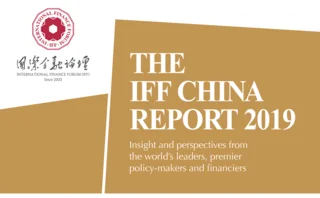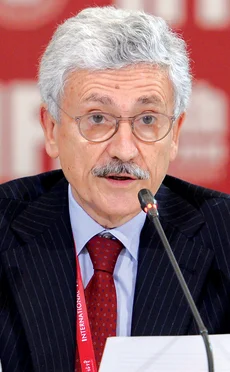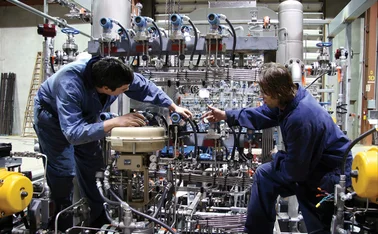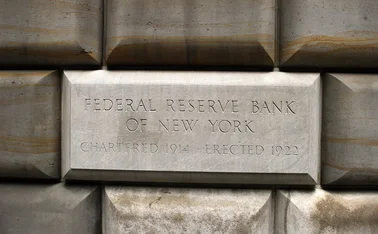
In the footsteps of Marco Polo


Six years have passed since President Xi Jinping launched the Belt and Road Initiative (BRI) in 2013. It is changing the global status quo, and fuelling economic recovery and development in the countries along its route.
The Belt and Road Forum for International Cooperation, held in Beijing in May 2017, was attended by high-ranking representatives of 140 governments and 80 international organisations; China signed agreements with 80 of them. It is obvious that the BRI’s importance extends far beyond economics, and marks a significant shift in the world’s geopolitical equilibrium. It is therefore understandable the BRI not only has supporters and beneficiaries, but has also raised suspicion and opposition.

This certainly applies to the open hostility of the US administration; President Donald Trump views China as an adversary and is aiming to block China’s expansion by means of a tariff war.
Conflict of interest
The European Union is apparently divided. Undoubtedly, the BRI offers opportunities for many European countries to attract investment and encourage growth in jobs. At the same time, there is concern that China may reinforce its position in Europe and gradually modify the balance of economic and political power in its favour. “Seen from Beijing, Europe looks like an Asian peninsula,” German chancellor Angela Merkel said.
A few months ago, a problematic document critical of the Silk Road Economic Belt circulated among European ambassadors in Beijing. It described the project as conflicting with the European agenda of free trade, and capable of shifting the balance of power in favour of Chinese companies supported by state subsidies.
In other words, the EU worries – or at least some Europeans do – that co-operation with China will mainly benefit the Chinese because of the imbalance deriving from differing approaches to regulation and degrees of market openness. Luckily, due to US pressure – which is hostile not only to China but also the EU – the EU-China Summit in Beijing last July brought about an improvement in China-Europe relations.
Globalisation and its discontents
To understand the origin of the resurgence of nationalism and protectionism in the US and in some European countries, we know that globalisation has generated an acceleration in global growth. Worldwide GDP has almost tripled, from US$50 trillion in 2000 to $135 trillion in 2018. According to International Monetary Fund data, it is expected to rise to $177 trillion in 2023.
However, this impressive economic growth has not been reflected in parallel growth in prosperity for all. Some economies – including China’s – have successfully explored all the potential of this process. Economic growth has been accompanied by social development, and in some cases by a dramatic process of emancipation, escape from poverty and expansion of the middle class.
At the same time, in many Western economies the effects of globalisation have been unequal, as data highlighting the increasing share of overall income received by the wealthiest segment of the population reveals. For a minority of the population – those belonging to the financial and educational elite – globalisation has offered an excellent opportunity that has been quickly embraced. For the vast majority, the process has been one of expropriation.
In 2016, 23.5% of the EU population was at risk of poverty or social exclusion. In absolute terms, this is 118 million people.
However, it is not only a matter of poverty – although this is, paradoxically, growing even in times of economic expansion. While financial wealth has become increasingly concentrated, the power of labour has become weaker and weaker. The effect of global competition, which attracts many factories and business to where labour costs are lower, has led to the stagnation of wages, growing unemployment and the rolling back of rights and guarantees compared with the standards previously considered normal in the West, particularly in Europe.
At the same time, it has become more difficult for the public purse to pay for welfare and pension systems, partly because the progressive taxation systems that once allowed a significant degree of income distribution have been undermined by the free circulation of global capital.
It is therefore understandable that fear and bitterness are spreading in the most vulnerable sections of society, and we are seeing the success of political forces hostile to globalisation that preach the closure of borders not only to immigrants, but also to foreign goods.
Some theorists maintain that the European political scene, dominated for more than a century by the conflict between progressives and conservatives, is now occupied by the battle between globalist and sovereigntist, with the prospect of a shift in the continental political balances that could lead to unrest. Aggressive nationalism and protectionism are not solutions; on the contrary, they risk serious conflicts and the exacerbation of social problems.
However, even those who believe globalisation is an unstoppable trend should not underestimate the magnitude of the antipathetic forces currently brewing. Since 2008, it has been clear the neoliberal logic of unregulated globalisation is no longer sustainable, and that political action is needed to steer the worldwide system towards a more harmonious globalisation that can protect the weakest members of society. Answers will not come from protectionism and selfish nationalism; equally, not everything can be left to the rule of market forces.
Today, setting these objectives may seem ambitious, even unrealistic, in such a conflict-riven situation. A realistic strategy is necessary between the most farsighted and responsible market players, capable of realising true co-operation.
It is important to work towards improving the quality of EU-China relations, and the BRI’s contribution to a higher level of co-operation on the Eurasian continent, which would inevitably also lead to benefits for Africa.
Strategic partnership
The BRI is a great opportunity for ensuring co-operation, rather than scepticism and hostility, can prevail. Doubts and uncertainties can and must be overcome. The faster China’s authorities are able to make the necessary decisions, the faster this will be achieved. The keywords are reciprocity and co-operation. The EU must, in the final reckoning, view partnership with China as a strategic choice, not a policy to be left to the individual countries.
China, on the way to becoming the world’s greatest economic power, can no longer expect to enjoy the safeguards and guarantees of a developing country. Three crucial aspects may be particularly significant. First, a strategy for Chinese investment in the EU agreed with authorities and tied in with EU development, strategies and priorities. Second, more openness in the Chinese market, especially in services, which may at least partly compensate for the trade imbalance now so strongly in China’s favour. Last but not least, greater dialogue and co-operation on the political and cultural level to remove prejudices and promote understanding of our respective public opinions.
The BRI creates a great opportunity to make these changes; since the beginning, I have been a strong supporter. In 1271, Marco Polo set sail from Venice with his father Niccolò and his uncle Maffeo. He came to Khanbaliq – what is now known as Beijing – after crossing Palestine, Turkey, Iraq, Iran, Afghanistan and Guangzhou. After meeting Kublai Khan, he made his way home along the lengthy route into China, Malaysia, India, Oman, Yemen and East Africa.
Along this route there are also fears and conflicts. Bringing peace and development along the BRI is a great mission that cannot be left to China alone. At the other end of the route is Europe, which must be encouraged to rise to its responsibilities. Italy can and must play an important role.
As President Xi has stated, China and Italy represent two ancient civilisations that have known and respected each other for thousands of years. Now, more than ever before, we must work together.
Only users who have a paid subscription or are part of a corporate subscription are able to print or copy content.
To access these options, along with all other subscription benefits, please contact info@centralbanking.com or view our subscription options here: subscriptions.centralbanking.com/subscribe
You are currently unable to print this content. Please contact info@centralbanking.com to find out more.
You are currently unable to copy this content. Please contact info@centralbanking.com to find out more.
Copyright Infopro Digital Limited. All rights reserved.
As outlined in our terms and conditions, https://www.infopro-digital.com/terms-and-conditions/subscriptions/ (point 2.4), printing is limited to a single copy.
If you would like to purchase additional rights please email info@centralbanking.com test test test
Copyright Infopro Digital Limited. All rights reserved.
You may share this content using our article tools. As outlined in our terms and conditions, https://www.infopro-digital.com/terms-and-conditions/subscriptions/ (clause 2.4), an Authorised User may only make one copy of the materials for their own personal use. You must also comply with the restrictions in clause 2.5.
If you would like to purchase additional rights please email info@centralbanking.com test test test







